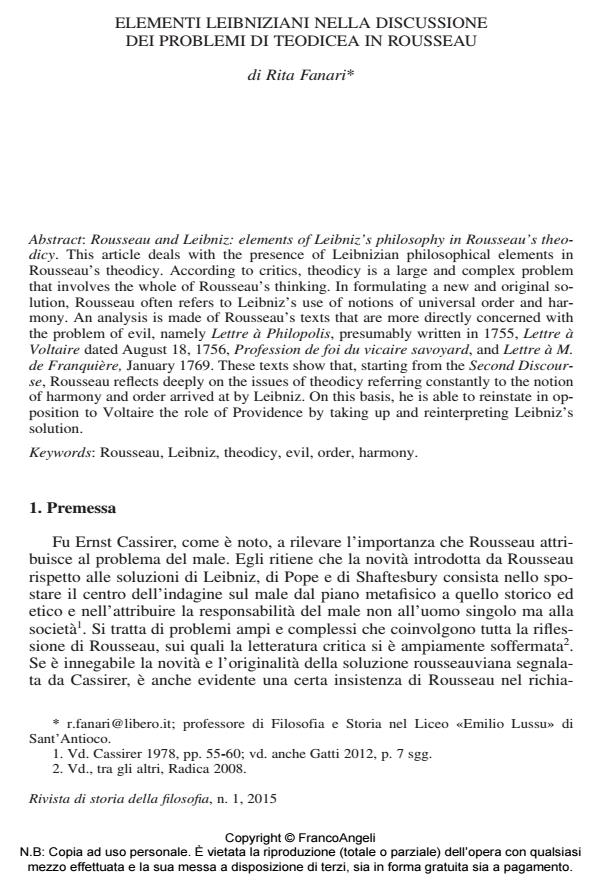Elementi leibniziani nella discussione dei problemi di teodicea in Rousseau
Titolo Rivista RIVISTA DI STORIA DELLA FILOSOFIA
Autori/Curatori Rita Fanari
Anno di pubblicazione 2015 Fascicolo 2015/1
Lingua Italiano Numero pagine 14 P. 35-48 Dimensione file 562 KB
DOI 10.3280/SF2015-001004
Il DOI è il codice a barre della proprietà intellettuale: per saperne di più
clicca qui
Qui sotto puoi vedere in anteprima la prima pagina di questo articolo.
Se questo articolo ti interessa, lo puoi acquistare (e scaricare in formato pdf) seguendo le facili indicazioni per acquistare il download credit. Acquista Download Credits per scaricare questo Articolo in formato PDF

FrancoAngeli è membro della Publishers International Linking Association, Inc (PILA)associazione indipendente e non profit per facilitare (attraverso i servizi tecnologici implementati da CrossRef.org) l’accesso degli studiosi ai contenuti digitali nelle pubblicazioni professionali e scientifiche
This article deals with the presence of Leibnizian philosophical elements in Rousseau’s theodicy. According to critics, theodicy is a large and complex problem that involves the whole of Rousseau’s thinking. In formulating a new and original solution, Rousseau often refers to Leibniz’s use of notions of universal order and harmony. An analysis is made of Rousseau’s texts that are more directly concerned with the problem of evil, namely Lettre à Philopolis, presumably written in 1755, Lettre à Voltaire dated August 18, 1756, Profession de foi du vicaire savoyard, and Lettre à M. de Franquière, January 1769. These texts show that, starting from the Second Discourse, Rousseau reflects deeply on the issues of theodicy referring constantly to the notion of harmony and order arrived at by Leibniz. On this basis, he is able to reinstate in opposition to Voltaire the role of Providence by taking up and reinterpreting Leibniz’s solution.
Parole chiave:Rousseau, Leibniz, theodicy, evil, order, harmony.
Rita Fanari, Elementi leibniziani nella discussione dei problemi di teodicea in Rousseau in "RIVISTA DI STORIA DELLA FILOSOFIA" 1/2015, pp 35-48, DOI: 10.3280/SF2015-001004